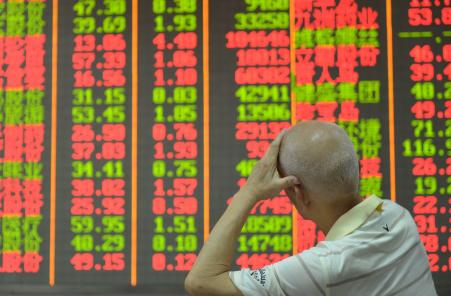By Avaneesh Pandey -

Amid lingering worries over the country’s economic health, Chinese stocks witnessed their sharpest decline in three weeks Tuesday. The Shanghai Composite Index tumbled nearly 6.2 percent to close at 3748.16 while the smaller Shenzhen Composite Index fell 6.6 percent to 2174.42.
“Investors ran for the exit when the government failed to step in to support the market,” Steve Wang, chief China economist at Hong Kong’s Reorient Financial Markets, told Bloomberg.
The yuan continued its decline against the dollar Tuesday. Before markets opened Tuesday, the People’s Bank of China (PBOC) -- the country’s central bank -- set the midpoint rate at 6.3966 per dollar, firmer than the previous fix of 6.3969. However, later in the day, the currency fell to 6.4011 per dollar.
Earlier on Tuesday, the PBOC offered 120 billion yuan (about $19 billion) worth of seven-day reverse repurchase agreements, or reverse repos -- which are short-term loans to commercial lenders in the money market -- in an attempt to inject liquidity.
"There have certainly been capital outflows associated with the yuan's recent weakening and today's move by the PBOC is in response to the tightening liquidity conditions," Suan Teck Kin, an economist at United Overseas Bank in Singapore, told MarketWatch.
The losses in Shanghai started building up last week after China’s central bank devalued its currency by nearly 2 percent, in a move aimed at helping China arrest its falling exports. The decision also triggered fears of a currency war of sorts and led to a knee-jerk selling by investors who speculated that Beijing wanted to engineer a much sharper decline in its currency.
